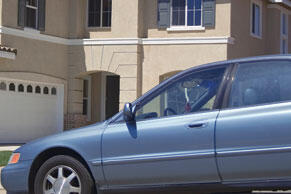VAT and electric vehicle charging
A business owns several electric vehicles (EVs), which are used by employees for business purposes. Other employees own EVs and the company pays them a mileage rate for their business trips. How much input tax can the business claim on the costs?

Current policy
HMRC recently confirmed it is trying to introduce practical measures that will ensure businessedscan claim a fair and reasonable amount of input tax on the cost of charging electric vehicles (EVs). The good news is that there is no problem if employers or employees charge either company vehicles or personal cars at the business premises or a public charging point. However, claimants will need to apportion the nput tax claim to reflect any private use of the vehicle, or account for output tax instead.
However, businesses cannot claim input tax if they pay employees a mileage rate for using their own EVs. This is different to other types of road fuel where input tax can be claimed if fuel receipts are submitted with the employee’s claim.
To support any VAT claims with charging at your business premises, mileage records will need to be kept for each vehicle, to show the split between business and private travel.
If employees pay for the charging costs of EVs, employers can pay them a special advisory fuel rate of 5p per mile. But no input tax can be claimed on these payments.
5% or 20% VAT?
There are some situations when a 5% VAT rate applies to electricity costs, e.g. domestic, de minimis and charity non-business use. However, HMRC confirmed that the VAT rate charged at public charging points should be 20%, even though there was an argument that it should only be 5%, based on the de minimis rules. Public charging points include car parks, service stations, supermarkets, etc.
Employers should always check whether they have been charged 5% or 20% VAT, so that they claim the correct input tax.
Charging at home
Business owners, i.e. sole traders and partners, can claim input tax on the cost of charging their EVs at home, assuming business use etc. But HMRC says that input tax claims for employees and directors are blocked for home charging because the supply of electricity is being made to the individual employee and not the business.
The easy VAT solution here is to insist that your employees only charge their vehicles at either a
Possible trap
There is concern that if a business seeks to claim input tax on the costs of charging company or employee-owned EVs, HMRC might seek to assess output tax with the scale charge system that is used for petrol and diesel vehicles if there is any private use of the vehicles in question, and the business has not apportioned the claim. This could mean that the output tax payment with the scale charge exceeds the input tax claimed - not a good result for the business!
Related News
-
Get ready for Making Tax Digital for Income Tax
If you’re one of the (un)lucky individuals who need to join Making Tax Digital for Income Tax (MTD IT) from 6 April 2026, you probably know that this involves submitting regular, digital records to HMRC. But what do you need to do to prepare?
-
Homeworking: claiming input tax on subsistence expenses?
Some of your staff work remotely, but their homes aren’t suited to it. You have agreed to pay for rented office space, or for refreshments if they work from, say, a café. Can you claim input tax on these expenses?
-
Beating the landlord tax hikes
Once again, landlords will be hit by tax increases announced in the Budget, even if they are operating through a company. What are the changes, and can anything be done to mitigate them?